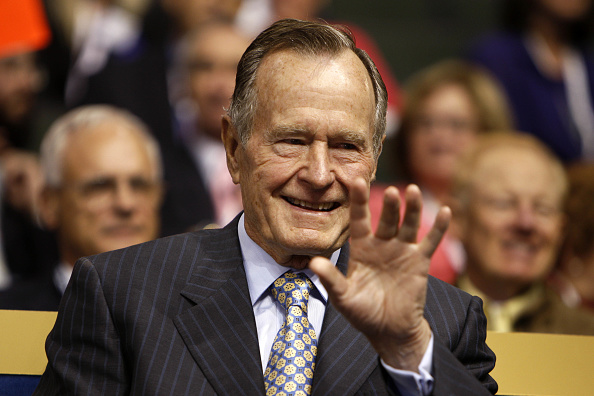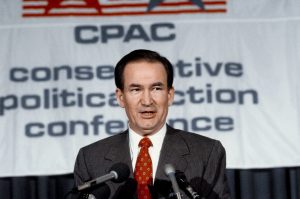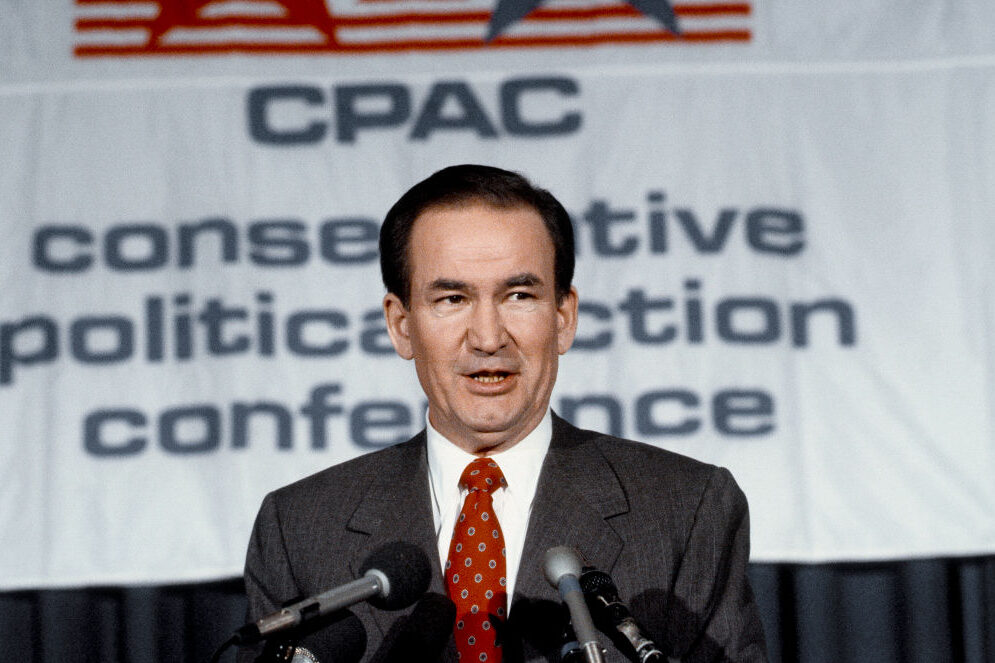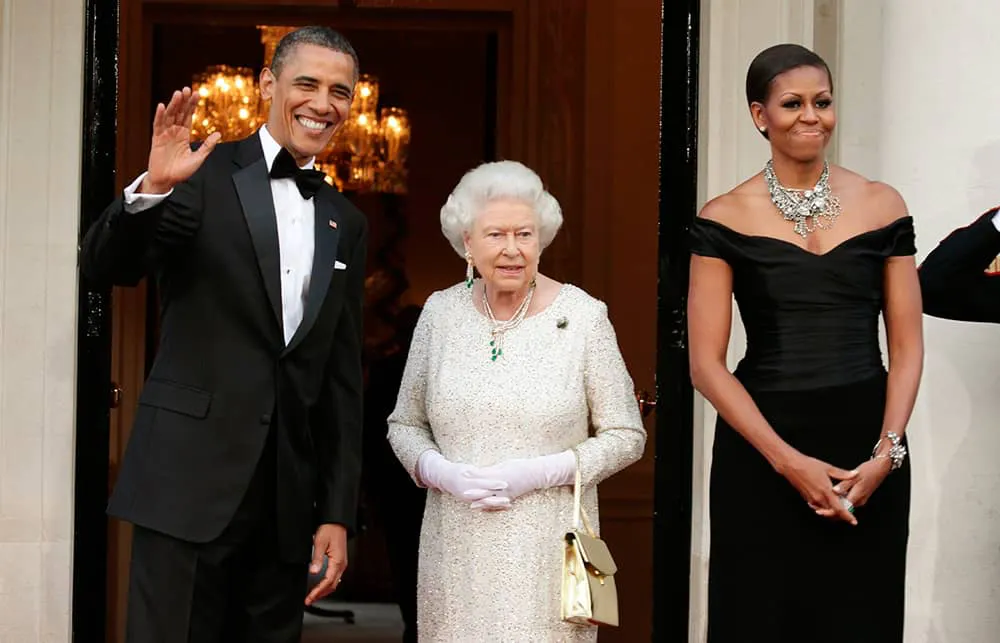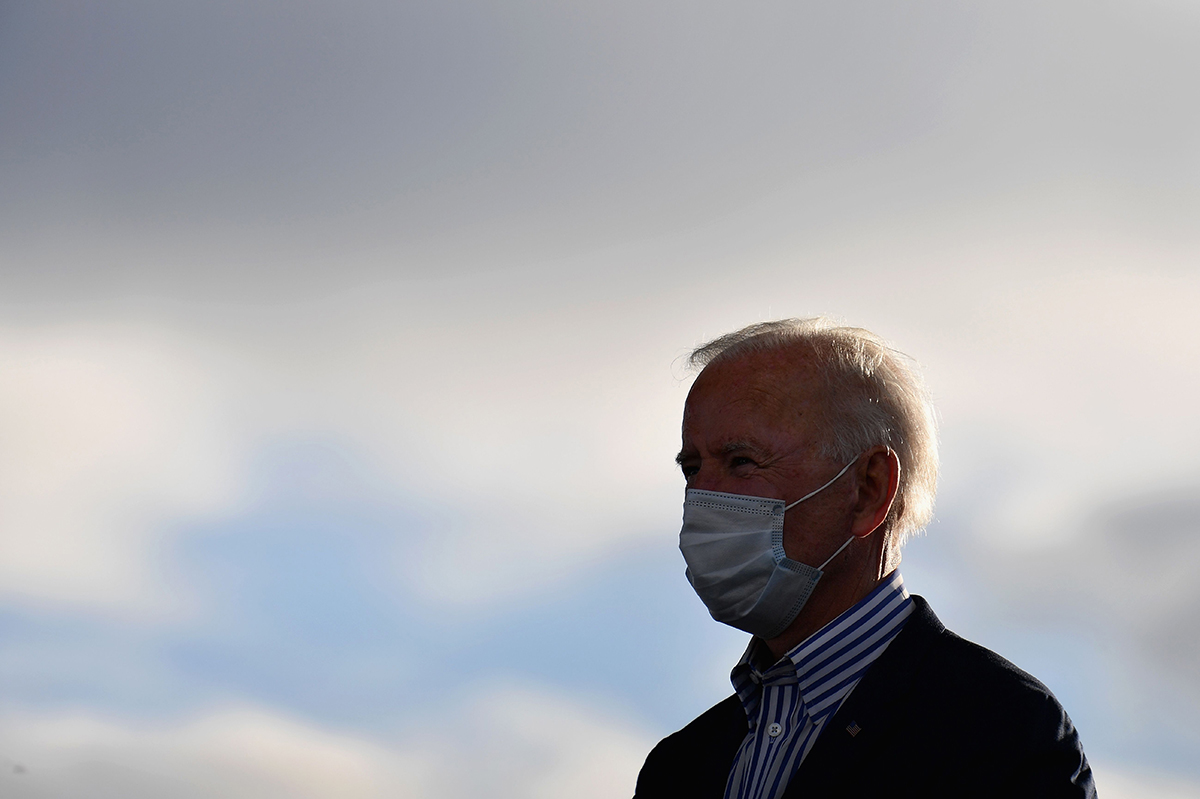George Herbert Walker Bush, America’s 41st president, became a figure of nostalgia long before he died Friday night. He was already a symbol of the Oval Office’s lost dignity within months of his departure from the White House, following his loss to Bill Clinton in the 1992 presidential election. Bush, in contrast to Clinton, was said to have been an adult. He was a member of the ‘Greatest Generation’ and had seen combat in World War II, in contrast to Clinton, a Baby Boomer who had avoided the Vietnam-era draft. So strong was the desire for a return to mature leadership that in 1998 and 1999 Bush’s son, Texas governor George W. Bush, shot to the top ranks of prospective Republican nominees for 2000 partly because voters confused him with his father.
The Bush 41 myth will swell to obscene proportions over the next couple of weeks, much as John McCain’s reputation did earlier this year. It’s an opening for all of President Trump’s detractors to draw a contrast and pretend that the years of George I were, like those of JFK, a Camelot. But they were not: George H.W. Bush was a failed president whose mistakes have defined American politics for the last 25 years — and much of the world’s politics, too, with the most tragic consequences for the Middle East.
Bush was the ultimate insider. He served in Congress as a representative from Texas, but he was a transplant: the Bushes came from New England. Bush was born in Massachusetts; his father had been a US senator from Connecticut. There was nothing Southern, let alone Texan, about them. Nor was there much that was conservative. So passionate was Congressman Bush about ‘family planning’ that he earned the nickname ‘rubbers.’ As a presidential candidate in 1980, running against conservative favorite Ronald Reagan, Bush mocked Reagan’s free-market plans as ‘voodoo economics.’
Reagan chose Bush as his vice presidential running mate that year in order to ‘balance the ticket’ and propitiate voters who thought the Gipper too right-wing. When Bush succeeded Reagan as president after 1988, however, he summarily fired almost all the Reagan staff — his litmus test was whether they had supported him over Reagan for the 1980 Republican nomination. Personal loyalty, not good service or conservative ideas, was what mattered. Bush broke faith not just with the Reagan agenda but with his own voters when he proceeded to raise taxes, having promised on the campaign trail in ’88 not to do so, telling doubters, ‘Read my lips: No new taxes.’
By betraying conservatives, however, Bush actually pushed the Republican Party to the right in the long term: never again would the party gamble on a presidential nominee who might raise taxes. And when Bush’s first appointee to the Supreme Court, David Souter, proved to be a supporter of the abortion rights created by Roe v. Wade, conservatives were driven to organize better to train and discipline lawyers and judges with a reliably rightist outlook. There has never been another Republican president like George H.W. Bush for the same reason there has never been another Republican justice like Souter.
What seemed to be Bush’s greatest triumph at the time has proved to be his ugliest legacy. The Persian Gulf War that Bush launched in 1991 to eject Saddam Hussein’s forces from Kuwait was a splendid success at first. But its aftermath was nothing but bitter. Hussein did not fall from power, and those Iraqis who rose up against him in hopes of support from Washington were slaughtered. His administration had a way of sending mixed signals that got people killed: shortly before he invaded Kuwait, Hussein and his foreign minister met with Bush’s ambassador to Iraq, April Glaspie. She told him Arab conflicts like the Iraq-Kuwait border dispute were none of America’s business. A week later, Iraq seized Kuwait.
The chain of events leading from Bush’s foreign policy to his son’s invasion of Iraq, the bloodbath of sectarian and tribal that followed there, the destabilization of Syria next door and the rise of the Islamic State, thereafter the flow of over a million migrants into Europe, Iran’s rise in absence of an Iraqi rival, so much more — it all began with the ‘adult’ Bush. He was by any estimate far more reckless than Donald Trump when it came to the use of military force. He waged a little war in Panama as well, in 1989, and in his final month as president Bush committed American troops to Somalia as ‘peacekeepers.’ Over a dozen would be killed in the ‘Battle of Mogadishu’ three months later, their bodies in several cases mutilated or dragged through the streets.
Bush’s success, in one sense, had been as dangerous as his failure. The swift victory of US force in the Persian Gulf War restored American confidence after the Vietnam War. But that confidence was translated by politicians following Bush’s example into hubris. Bush had never succeeded in remaking the Middle East or inaugurating the pro-democratic ‘New World Order’ he liked to talk about. He had the good luck to be president when the Berlin Wall came down and the Soviet Union imploded. America had the bad luck to have him as president just when a post-Cold War grand strategy was needed.
He had been the director of the CIA before running for president. Bush was very much a ‘company man,’ exactly the kind who could not change his way of thinking after the Soviet enemy was gone — and indeed, former Reagan officials and a new generation of diplomatic historians have revealed that before the Berlin Wall was breached, Bush and his advisers thought that Reagan had been too soft and optimistic. They were ready for a renewal of the Cold War — much as today many neoconservatives who served in the Bush administration continue to approach foreign affairs with a Cold War mentality, with Iran or ‘Islamo-Fascism’ as new USSR. Or Russia, for that matter, in the case of the more openly NeverTrump neocons.
Ironically, one of the best decisions Bush made was one for which Donald Trump would have been guillotined: Bush refused to encourage Ukrainian efforts to break free from the Soviet Union in summer of 1991 and warned of ‘suicidal nationalism’ on the part of Ukraine. Bush was right, not because the Ukrainians did not deserve their independence — which they soon peacefully obtained—but because US involvement would have been a goad to Russian nationalism and could only have complicated the necessary work of dismantling the Soviet Union, work that could only be carried out by Soviet subjects (including Russians) themselves.
When Bush sought re-election in 1992, the country was economically demoralized by a recent recession and the specter of industrial decline in the face of Japanese competition. In more ways than one, 1992 was a premonition of the Trump years. The problems America faces now — in foreign policy, economics, and even with multiculturalism and immigration — were already glaring when Bush was president. He failed to address them then, and now they are of a much greater magnitude. Donald Trump is the anti-Bush, but the conventional wisdom is wrong. Bush was the failed president for whom only someone like Trump could be the remedy — if there is any remedy at all.
To put it another way, if you don’t like Donald Trump — if you didn’t like Bush II or for that matter Bill Clinton — you should wish that George H.W. Bush never got into politics. He gave his country and the world a litany of evils that no one has yet been able to banish. Let his family mourn, but don’t celebrate what he did.



